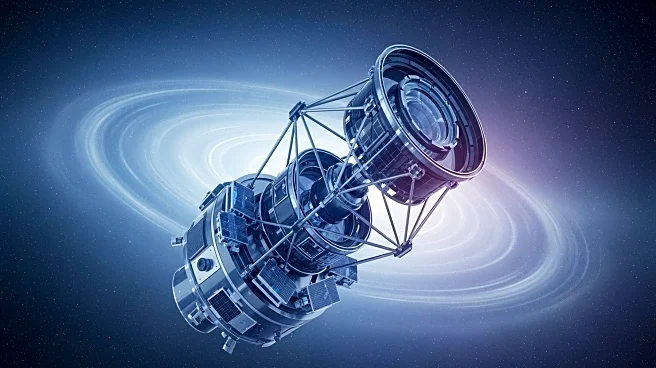What's Happening?
The European Space Agency (ESA) is finalizing preparations for the launch of its PLATO exoplanet hunter, scheduled for December. The spacecraft recently underwent successful engineering tests, including
the deployment of its twin solar panels, which are crucial for its mission to search for Earth-like exoplanets. These tests were conducted in a clean lab, ensuring the panels can wrap tightly during launch and spread out in space. The mission, valued at 4 billion Euros, aims to use 26 cameras to observe over 150,000 stars, detecting exoplanets by monitoring changes in starlight.
Why It's Important?
The PLATO mission represents a significant advancement in the search for habitable planets beyond our solar system. By identifying Earth-like exoplanets, the mission could provide insights into the potential for life elsewhere in the universe. This endeavor not only enhances scientific understanding but also positions Europe as a leader in space exploration. The successful deployment of PLATO's solar panels is a critical step in ensuring the spacecraft's operational readiness, highlighting the importance of technological innovation in expanding human knowledge of the cosmos.
What's Next?
Following the successful panel deployment, PLATO will undergo prelaunch testing, including simulations of rocket liftoff and space vacuum conditions. These tests are designed to ensure the spacecraft's resilience and functionality during its mission. Once launched, PLATO will embark on a long-term search for exoplanets, contributing valuable data to the scientific community. The mission's success could pave the way for future explorations and collaborations in the field of astrophysics.
Beyond the Headlines
The PLATO mission underscores the growing importance of international collaboration in space exploration. As countries invest in advanced technologies to explore the universe, ethical considerations regarding space stewardship and the impact of space missions on Earth's environment become increasingly relevant. The mission also highlights the cultural significance of space exploration, inspiring future generations to pursue careers in science and technology.









